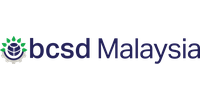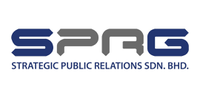Event Details
Course Description
The Mastering ESG Strategies for Business Excellence - Foundation Course on Sustainability and ESG Materiality course provides ESG practitioners and decision-makers with a comprehensive foundation in sustainability and governance, equipping them to drive long-term business success through strategic sustainability integration. This module offers participants an in-depth exploration of current ESG trends, focusing on the core pillars of sustainability and the evolving concept of planetary boundaries. Through interactive sessions, participants will gain insights into the critical connections between the Sustainable Development Goals (SDGs) and ESG criteria, understanding how these frameworks intersect to enhance corporate governance, value creation, and risk management.
In today's business landscape, capital markets and stakeholders are increasingly demanding robust insights into material ESG issues. The course highlights the importance of materiality assessments, which enable companies to identify, prioritize, and report on the most significant risks and opportunities. This is vital not only for regulatory compliance but also for enhancing corporate transparency and strengthening stakeholder confidence.
Emerging trends such as climate adaptation, biodiversity impact, and the just energy transition will be discussed, offering participants practical tools to navigate these complex challenges. Moreover, participants will examine the role of technological innovation in enabling system-wide transformations, from renewable energy adoption to circular economy solutions, ensuring their businesses remain agile and resilient in a rapidly changing world.
The second half of the course focuses on embedding sustainability into core business strategies. This involves integrating ESG considerations into business models, governance structures, product development, and investment decisions. By the end of the training, participants will understand how to use sustainability as a lever for mitigating risks, enhancing corporate resilience, and seizing new market opportunities.
This course ensures that participants have a thorough understanding of the values of ESG but are also equipped with actionable strategies to make sustainability a core driver of corporate success in today's competitive landscape.
Expected Learning Outcomes
Participants will develop a comprehensive understanding of ESG principles and the United Nations Sustainable Development Goals (SDGs), recognizing their vital role in strategic business planning. They will examine the necessity of transitioning to a low-carbon economy, including the associated risks, opportunities, and the pressing need to address climate change and biodiversity loss. Additionally, participants will explore the concept of planetary boundaries and the importance of operating within Earth's ecological limits to ensure long-term sustainability.
By the end of the course, participants will be well-equipped with the knowledge and tools required to navigate the intricate landscape of ESG-related risks. They will gain a deep understanding of the materiality assessment process, essential for identifying and prioritizing the most significant ESG issues affecting their organization and its stakeholders. Participants will also learn to assess critical ESG-related risks such as climate change, resource depletion, regulatory shifts, and reputational risks. The course will further address the evaluation of nature-related financial risks, enabling organizations to assess their exposure to challenges like biodiversity loss, ecosystem degradation, and water scarcity, and to integrate these factors into their materiality analysis.









